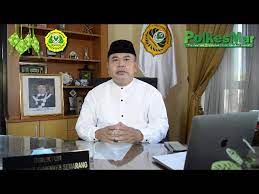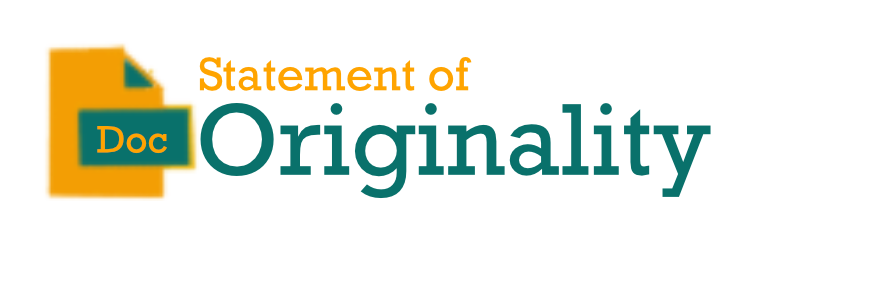Editorial Team Reviewers Focus and Scope Publication Ethics Open Access Statement Author(s) Fee License Term Plagiarism Policy Statistics Indexing History Template
Publication Ethics
Journal of Environmental Health and Sanitation Technology (JEHAST) is a peer-reviewed journal. This journal follows guidelines from Committee on Publication Ethics (COPE) to meet high-quality standard of ethics for publisher, editors, authors, and reviewers.
Based on the Head of LIPI Regulation Number 5 of 2014 concerning the Code of Ethics for Scientific Publication, the Code of Ethics for Scientific Publication upholds three ethical values in the publication, namely:
- Neutrality, which is free from conflicts of interest in publication management.
- Justice, namely giving authorship rights to those who are entitled as authors.
- Honesty, which is free from duplication, fabrication, falsification, and plagiarism in publications.
Journal Manager/Publisher
- Journal publishers are required to prepare personnel and other journal equipment, including the availability of funding sources for the sustainability of journal publications, licensing and other legal aspects, building collaborative networks and marketing.
- Journal Publishers are responsible for publishing manuscripts which after going through the editing, reviewing, and layout processes in accordance with the scientific journal publishing rules and publishing journals regularly.
- To create a comfortable working atmosphere, publishers are responsible for ensuring academic freedom for editors and reviewers in carrying out their respective duties.
- Journal managers must guarantee and protect intellectual property rights (copyright).
- Journal managers must publish and promote publications to the public by guaranteeing the benefits of using the manuscript.
- Appreciate things that are confidential, both for contributing researchers, authors / authors, editors, and review partners.
- Applying norms and provisions regarding intellectual property rights, especially copyright.
Editor
- Editors have the complete responsibility and authority to accept or reject an article.
- The editor receives, reviews, and follows up complaints from all parties involved in publishing the journal.
- Editors have to take responsibility for every article published in Journal of Environmental Health and Sanitation Technology (JEHAST)
- Editors can discuss with other editors or reviewers in making this decision.
- The editor evaluates each text for their intellectual content regardless of nationality, ethnicity, political beliefs, race, religion, gender, seniority, or institutional affiliation of the authors.
- The editor and every editorial team will not disclose any information about the submitted manuscript or manuscripts except with the permission of the author.
- Unpublished manuscripts will not be used by the editor for their own benefit and will be returned directly to the author.
- The editor encourages the author / writer so that he can improve their written work until it is worthy of publication.
- The editor carries out a script layout that will publish so that it matches the journal template.
- The editor helps the editor in chief in finalizing the collection of manuscripts before printing and publishing, especially in terms of language, format and layout.
Authors
- The author presents the results of their thoughts or research clearly, honestly, and without plagiarism, and data manipulation.
- The author must ensure that the manuscript that submitted to the editor is the original manuscript, written by himself.
- The author must inform that the manuscript sent/submitted to the editor is a manuscript that has never been submitted/submitted to another journal/publication publisher.
- Authors should not submit the same manuscript to more than one journal concurrently.
- The author should ensure the originality of the work and they have properly cited others’ work in accordance of the references format.
- The author must understand the ethics of scientific publications above to avoid conflicts of interest with other parties, so that the manuscript can be processed smoothly and safely.
- The author must immediately inform the editor if errors are found in the writing of the manuscript, both the results of the review and the edits. The writing errors include writing names, affiliations/agencies, quotes, and other writings that can reduce the meaning and substance of the manuscript. If that happens, the author must immediately propose improvements to the manuscript.
Reviewer
- Peer review assists the editor in making editorial decisions and through the editorial communications with the author may also assist the author in improving the paper.
- The review must carry out objectively. Personal criticism for the author is inappropriate.
- Reviewers must identify relevant works that have published that have not been quoted by the author. Any statement that observation, elaboration, or argument has previously reported must accompany by a relevant quote.
- Reviewers must warn the editor if there is substantial similarity or overlap between the manuscript reviewed and each other paper published in accordance with the reviewer's knowledge.
- Any important information or ideas obtained through the peer-review process must be kept confidential and not used for personal gain.
- Maintain the confidentiality of the text, by not discussing it with unrelated parties, or disclosing the information contained in the text to other parties.












